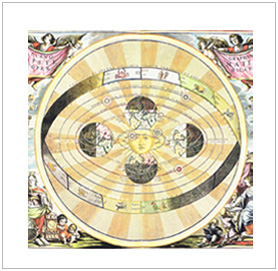| .ITA | ENG | ESP | DEU | FRA |
|
 |
«Psychoanalysis and the different thought lines resulting from it are only a timid attempt of a beginner, if compared to what is an immemorial art in the East» - Carl Gustav Jung (1959) |
|
Transpersonal psychology is a quite recent science of mind. It was born around the end of the Sixties as “the fourth power” of psychology, to underline its availability to meet the oriental themes and the creation of a wider consciousness model. In fact, behaviourism (the so-called “first power”) denies the possibility to free one’s own mind from any kind of conditioning, whereas the Freudian orthodox psychoanalysis (the “second power”) reduces each spiritual experience to a kind of regressus ad uterum. On the basis of the humanistic psychology (the “third power”) and of the work of Anthony J. Sutich and Abraham Maslow (with his researches on the “peak experiences”), transpersonal psychology aims not only at “treating” “mental illnesses”, but also at exploring a new vision of reality and at deeply investigating the highest levels of personal and collective consciousness (levels that, during the centuries, the different cultural traditions have defined with a range of expressions, from mystic ecstasy to oceanic experience, from nirvana to satori, from Kingdom of Heaven to cosmic consciousness). |
interest in the Ego (a harmonious “numinous” dimension that transcends and, at the same time, involves the conscious ego and the unconscious one) and the interest in the expansion processes of awareness, beyond the egoic capsulation (in the conviction that man is not only a historic-geographical result, but that he contains the seed of eternity in himself); and so on. Transpersonal psychology’s forerunner is Carl Gustav Jung, who began a prolific exchange of channels with the Oriental world. We could not understand Jung’s philosophy if we do without, for example, his analysis of mandalas (images showing circular diagrams with a complex scheme, that reproduce the universe in a microcosmic way; in this meaning, they are psychocosmograms). Mandalas Jung’s study has been decisive for the whole Ego psychology, archetypes’ psychology. According to Jung, when man reaches the highest point of his existential process, the identifying, he experiences a transfer of his centre, from himself to the Ego. He will then be able to embrace the archetypes that live in his inner geography. |